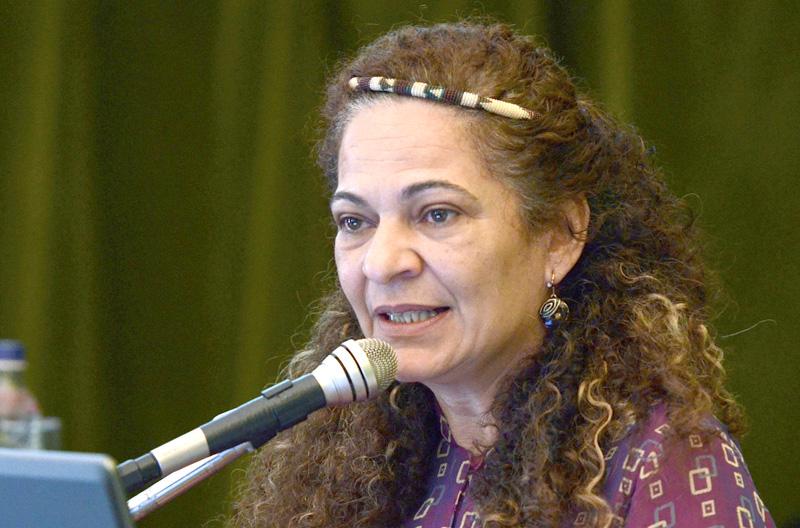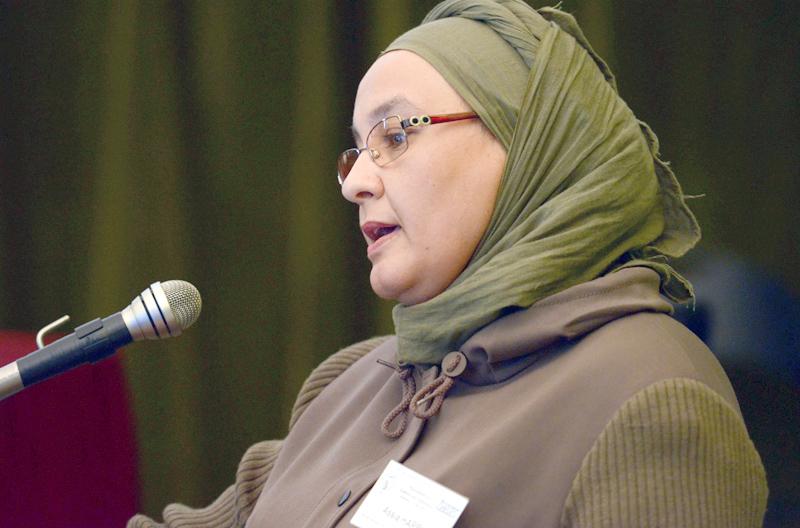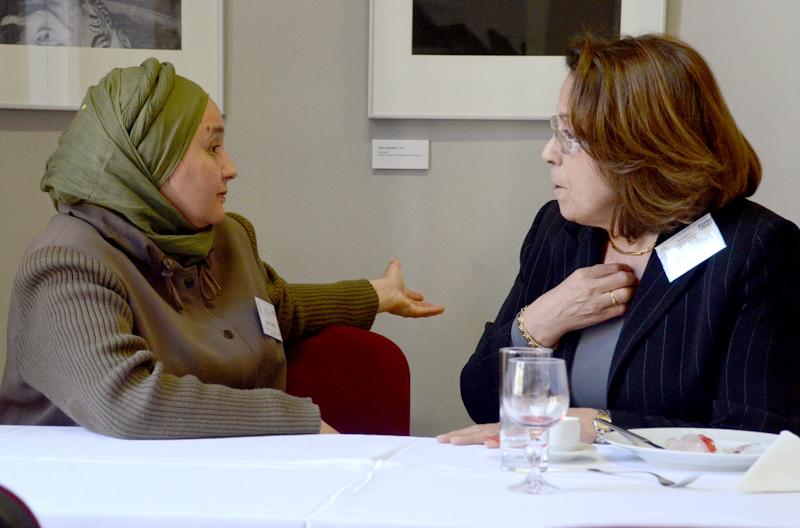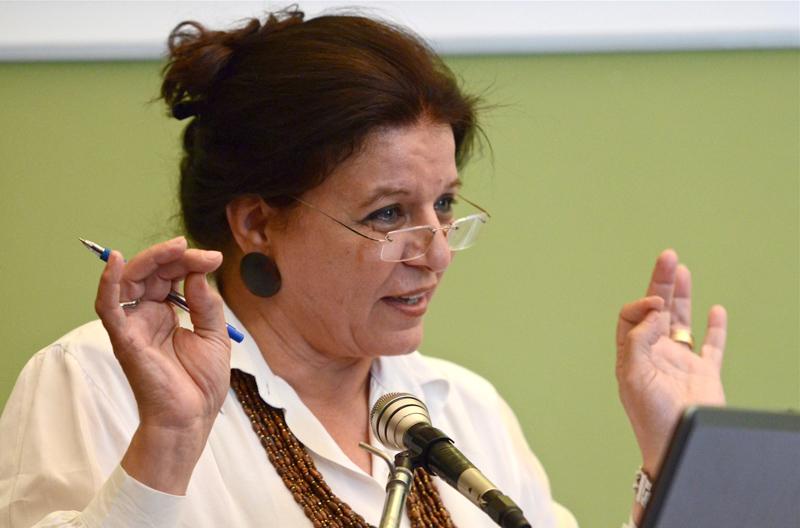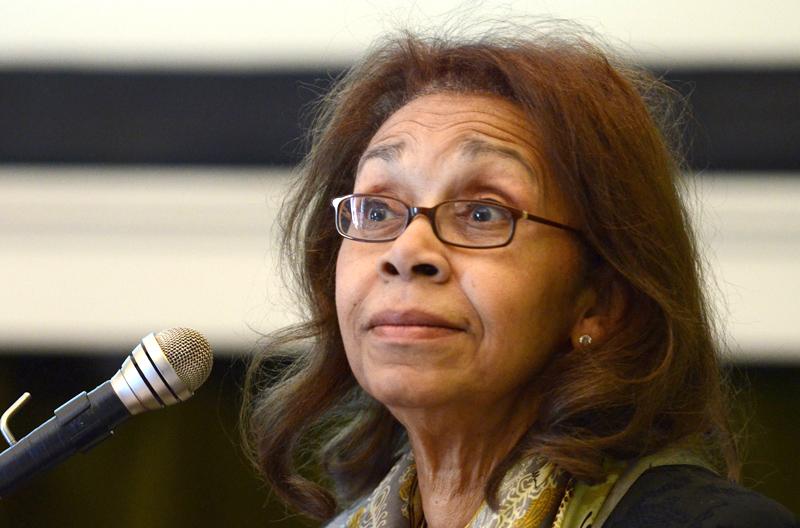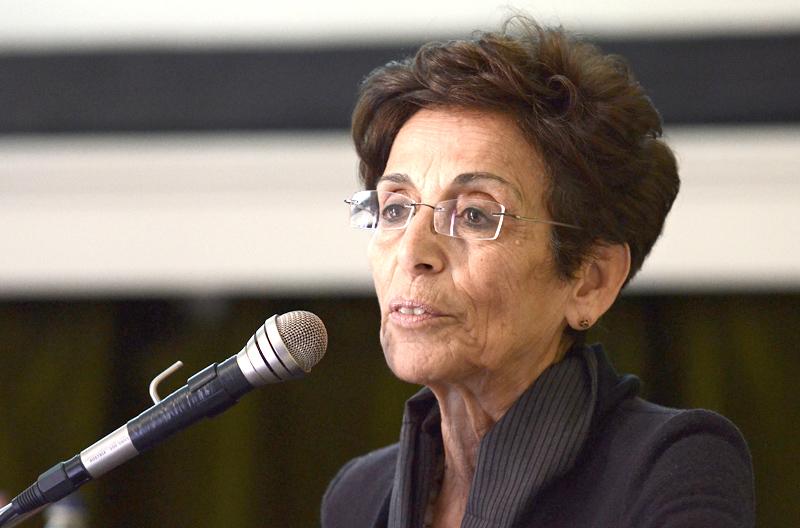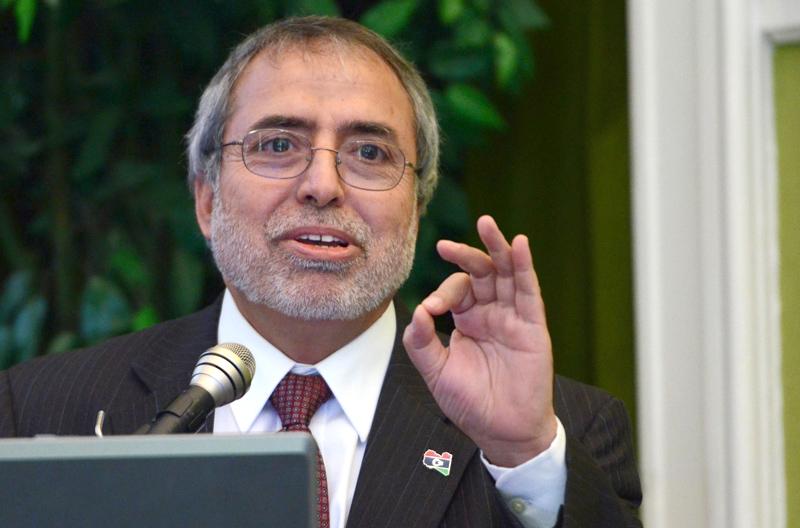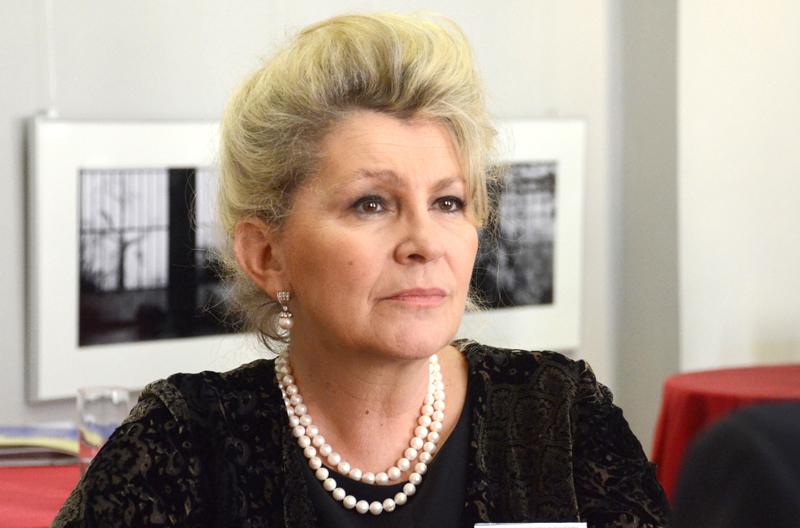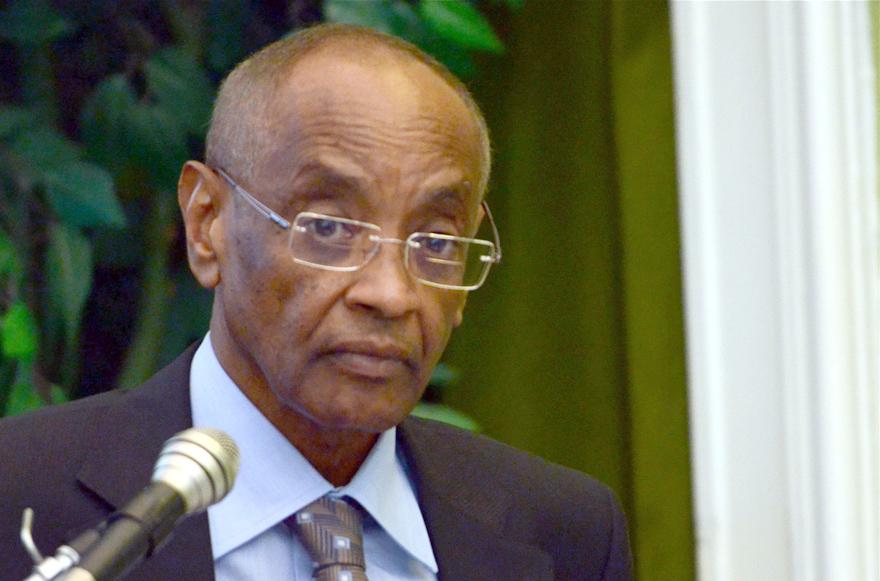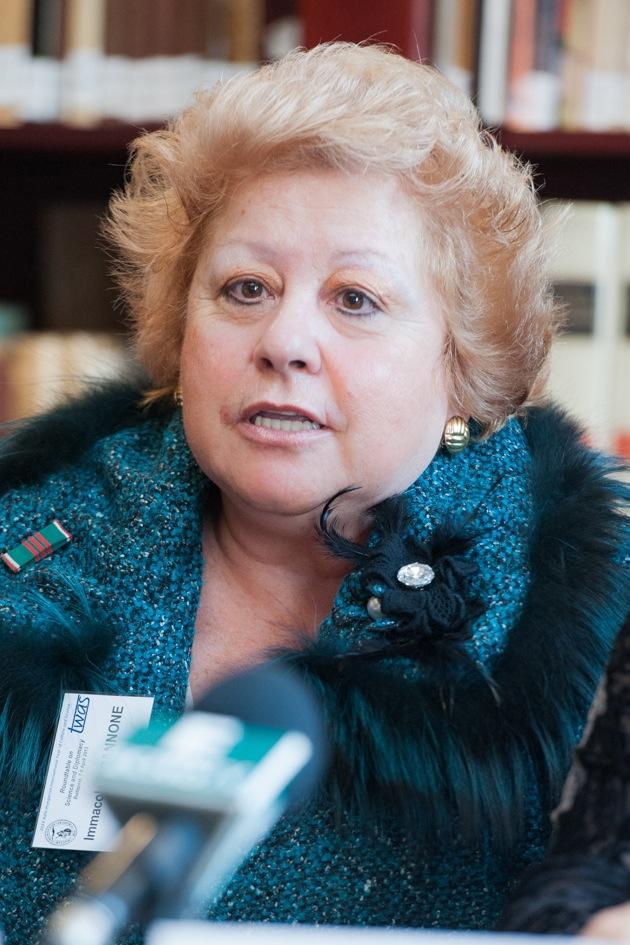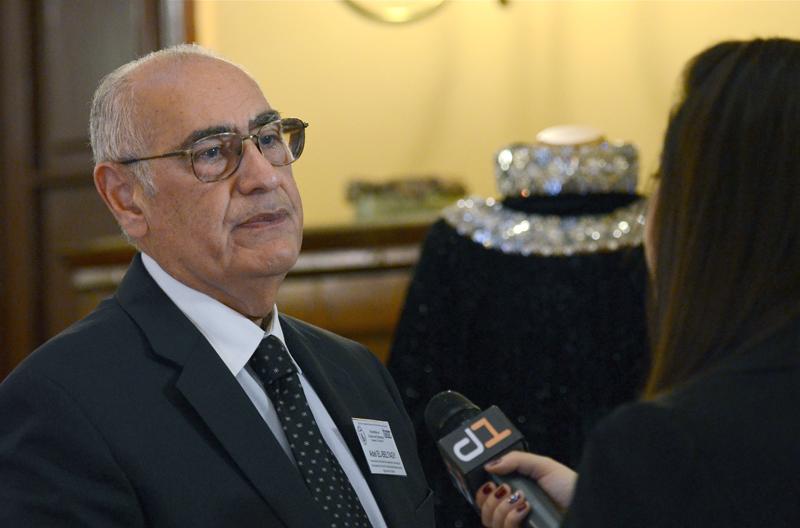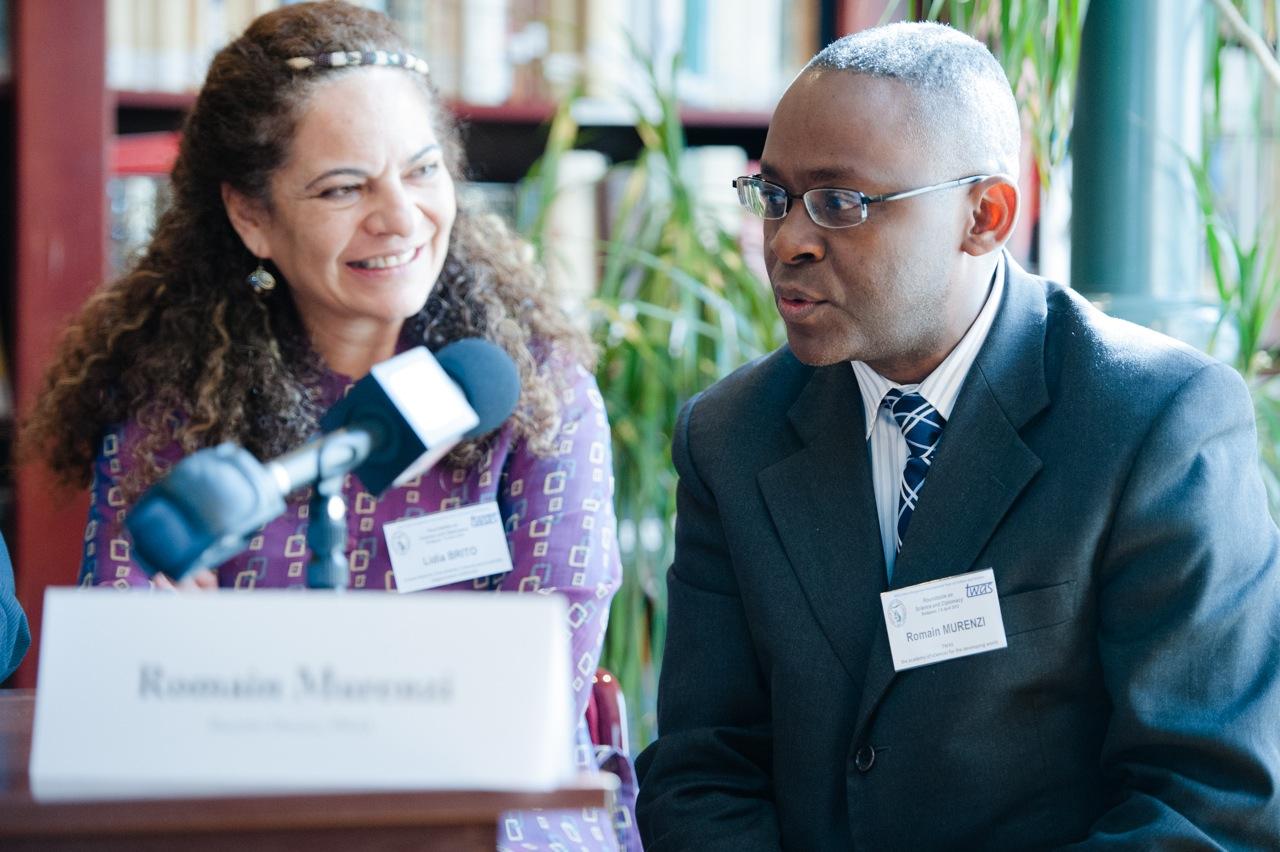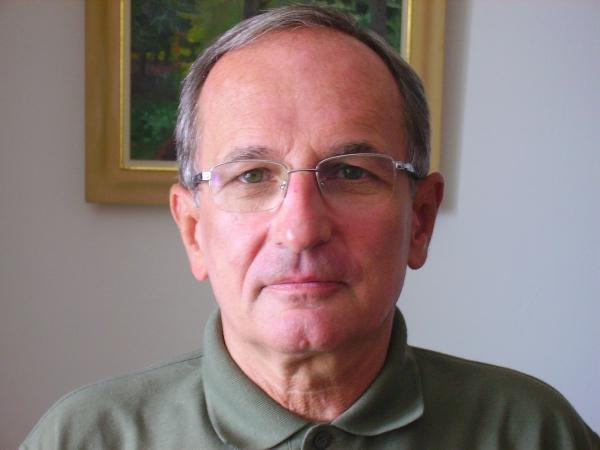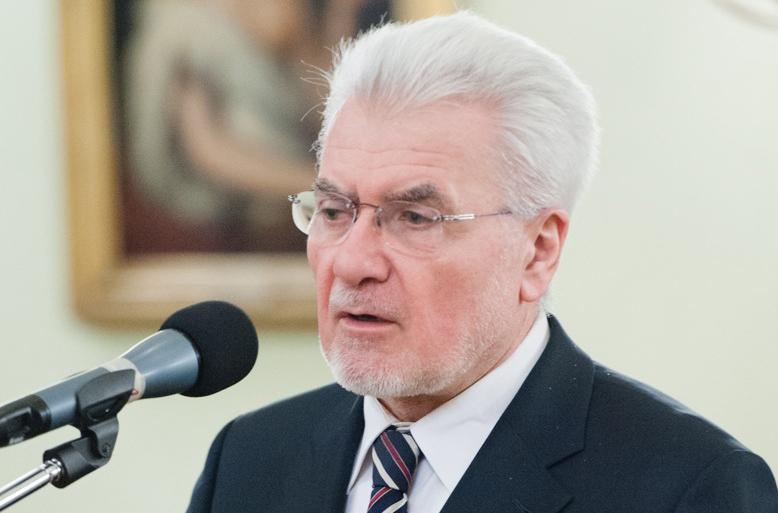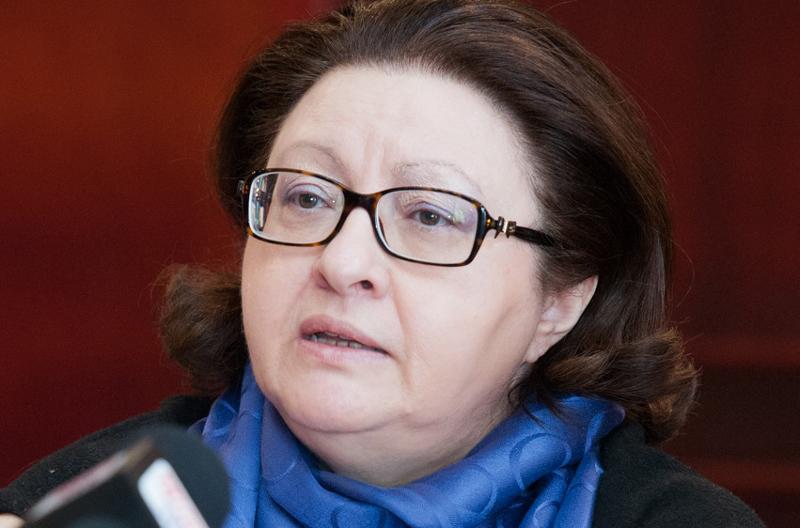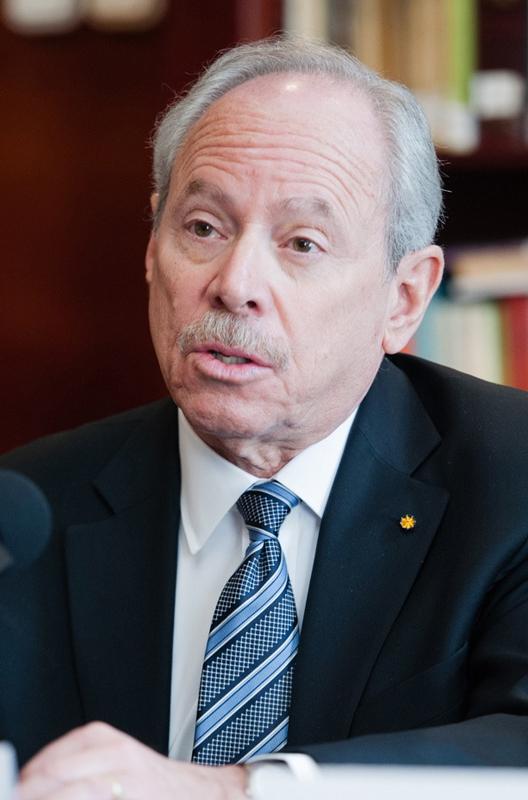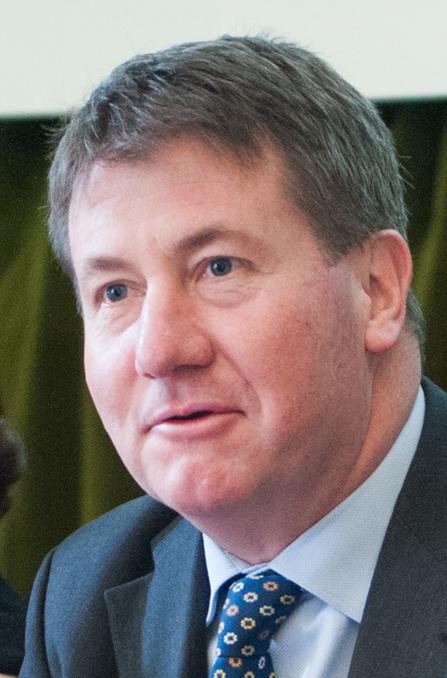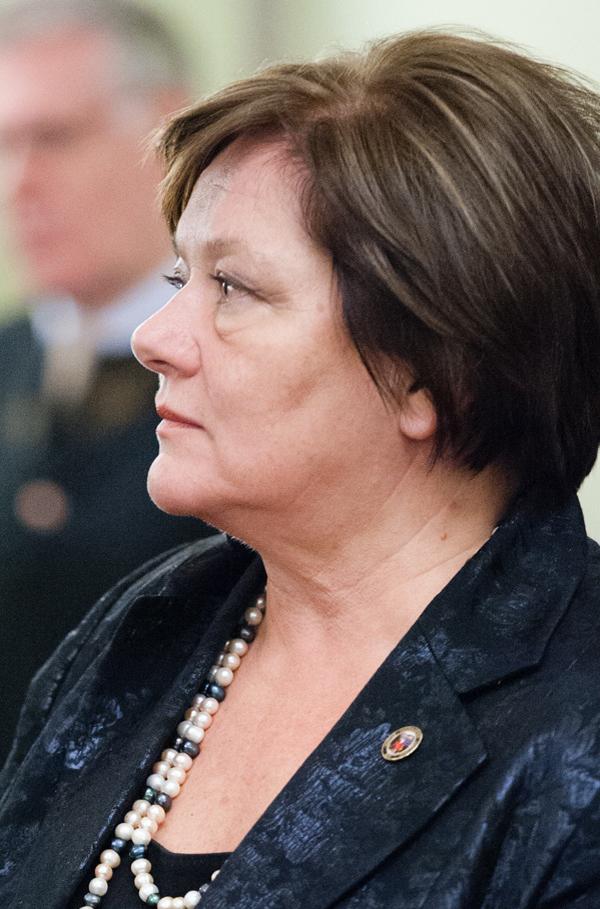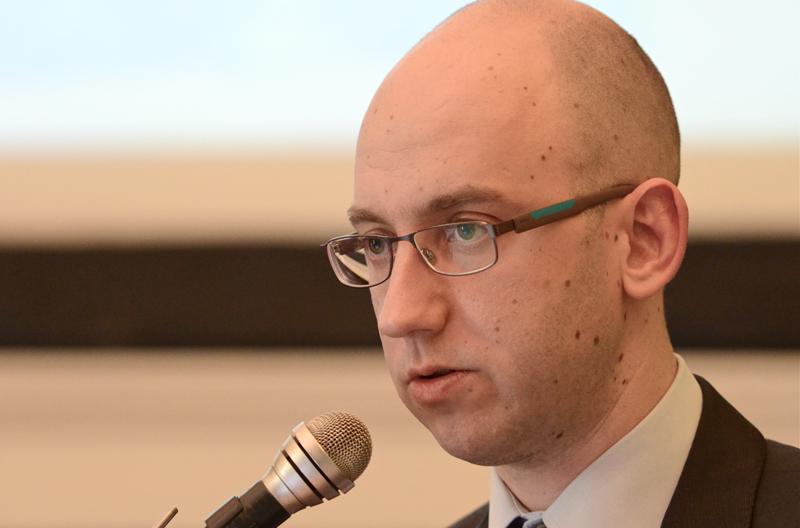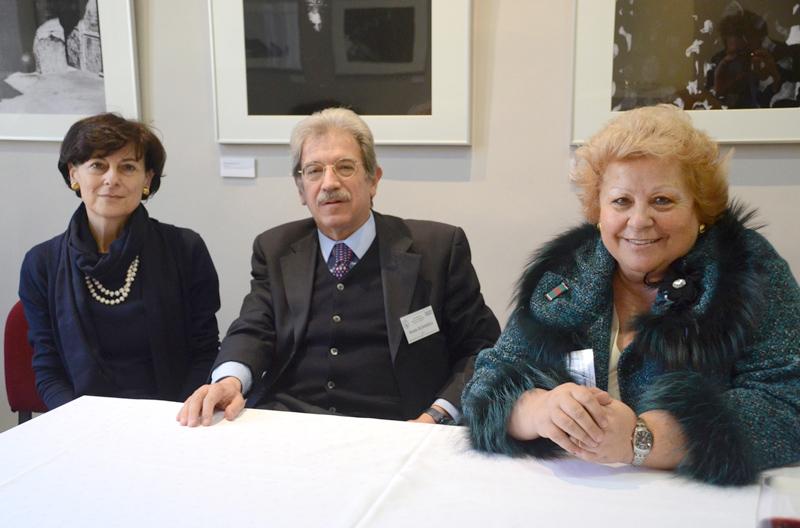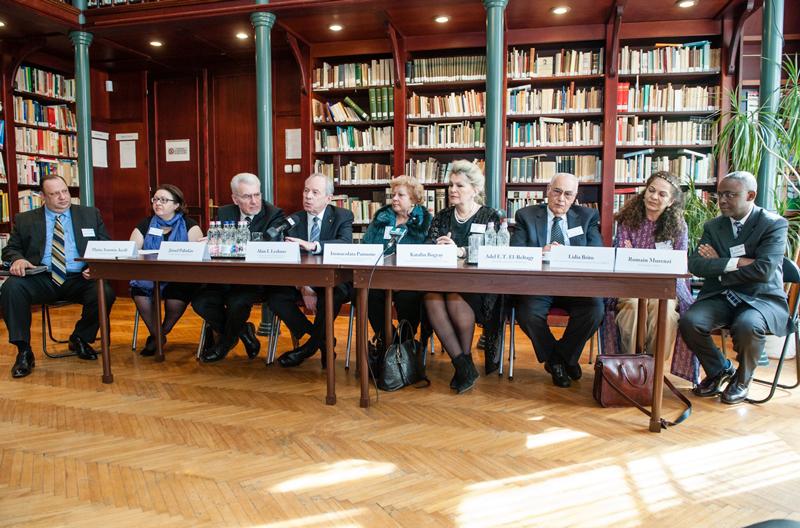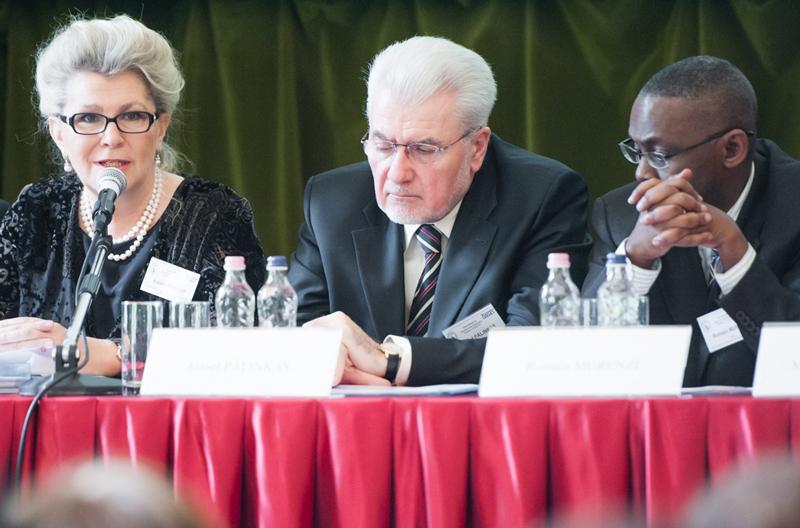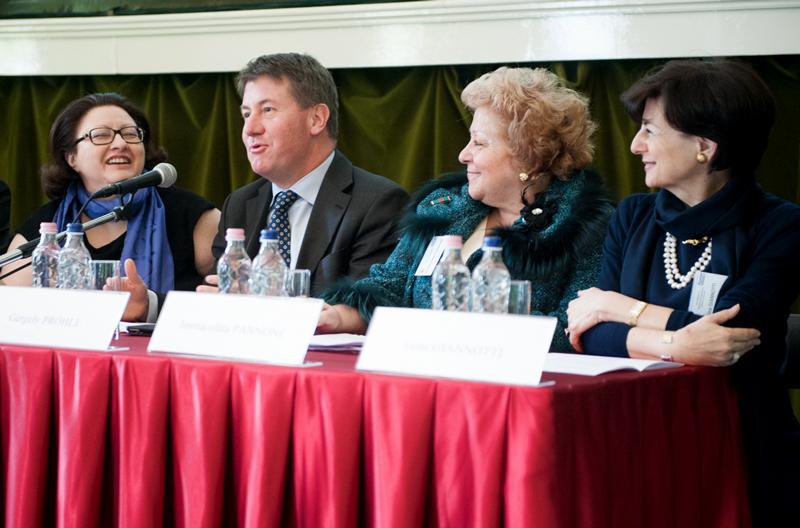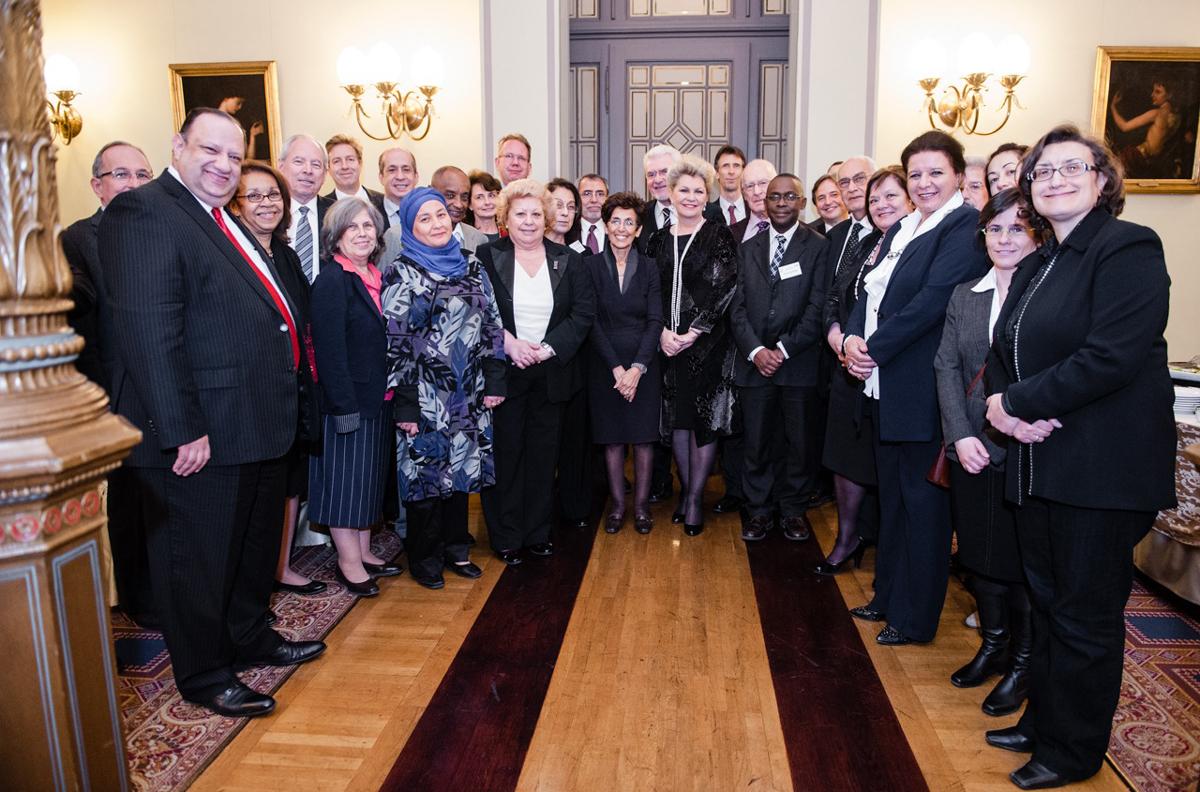BUDAPEST, Hungary – Science diplomacy could help renew long-standing research and education networks linking nations of Central Europe and North Africa, with broad potential benefits for both regions, high-ranking officials said at a roundtable organized by the Hungarian Academy of Sciences and TWAS. Speakers at the event suggested that the regions are linked by common interests and common challenges, ranging from climate change to food production to research infrastructure. But a key question, they said, is how to adapt bonds that were strong during the Cold War to the needs and conditions of the 21st century.
"In the Mediterranean region as well as in parts of Europe, we are going through serious challenges related to climate change as well as food crisis and scarcity," said Adel ElSayed Tawfik El-Beltagy, chair of the International Dryland Development Commission and president of Centre International des Hautes Etudes Agronomiques Méditerranéennes in Egypt. "We are going through a financial tsunami, which is hitting both Europe and the rest of the Mediterranean, as well as political and socio-economic changes the emerged following the Arab Spring. All of this is creating a complex and dynamic landscape where the problems are tightly coupled.
"If we don't see that for Europe, the prosperity on the southern side of the Mediterranean is very important for its own security – if we don't see the 'we' – the future is bleak."
Romain Murenzi, executive director of TWAS, noted that a core of countries worldwide, including some in the Southern Mediterranean, are being "left behind" as other developing nations begin to prosper.
"Central and Eastern Europe have a role to play", Murenzi told a news conference during the roundtable. "They have a historical reputation for scientific excellence. During the Cold War era, you have received many science students from developing countries. I would like to see if there's a possibility to develop a North-South network, just as many of us are building a South-South network."
Piotr Salwa, director of the Scientific Centre of the Polish Academy of Sciences in Rome, agreed that a constructive renewal of those ties should be considered.
"My general knowledge makes me believe that there is a research potential in Poland that could be a committed to projects in common with the Southern Mediterranean", he said. While nations of Eastern and Central Europe are often dealing with financial constraints and brain drain, Salwa added, exploring those issues and finding valuable joint projects could aid both regions.
"I think it's major now, or within one or two years, to enter this international cooperation", he said.
"If we don't see that for Europe, the prosperity on the southern side of the Mediterranean is very important for its own security – if we don't see the 'we' – the future is bleak."
The roundtable – 'Science and Diplomacy: Central Europe and Southern Mediterranean' – brought together nearly 50 science and policy leaders from 12 nations: Algeria, Croatia, Hungary, Egypt, Italy, Libya, Morocco, Romania, Serbia, Slovakia, Tunisia and the United States. They met on 8 April at the Italian Institute of Culture in Budapest, under the auspices of the 2013 Italo-Hungarian International Year of Culture and Science. Important support was provided by the Italian Embassy; the Italian Ministry of Foreign Affairs; the United Nations Educational, Scientific and Cultural Organization (UNESCO); and the Swedish International Development Cooperation Agency (SIDA). IAP, an international network of more than 100 science academies, was represented at the roundtable by its co-chairman, Mohamed H.A. Hassan, who also serves as treasurer of TWAS.
The day-long roundtable generated extensive news coverage in Italy and Hungary. Discussions at the event ranged broadly, from the challenges confronting women in science and engineering and the role of science academies in building research to weak governance and other obstacles encountered by less developed countries as they seek to build research capacity.
For UNESCO, the focus on Africa and on women are top priorities, said Katalin Bogyay, president of the UNESCO General Conference. "We feel the empowerment of women is a very important possibility for everyone in humanity", she said. "We need to strengthen the rights of women because there are many places were they have to fight to go to school to study, to take part in a deeper sense in science and in science diplomacy as well."
Building a Network of Partners
Maria Assunta Accili, Italy's ambassador to Hungary, said in welcoming remarks that science has played a central role in historic relations between Italy and Hungary. And she said, the role of Trieste as an Italian – and international – centre of science is paralleled by the ambitious international role played by the Hungarian Academy of Sciences.
Trieste is "a melting pot for scientists all over the world", Accili said. "Hungary has a very, very open and extremely developed scientific research system. If we would like to enhance cooperation, which is the goal of my government, we would like to have Hungary more and more involved in the types of activities we are leading in Trieste."
Gergely Prőhle, deputy state secretary for European bilateral relations and cultural diplomacy in Hungary's Ministry of Foreign Affairs, also cited important bonds between the two nations, both historically and in contemporary times. Today, he added, his nation is increasingly turning east – to the Far East and the Middle East. For Hungary, "science and higher education play a very important role" in diplomacy, Prőhle said.
Immacolata Pannone, of the Italian Ministry of Foreign Affairs' Bilateral and Multilateral Scientific and Technological Unit, predicted that the discussions could help align the efforts of many nations.
"The main goal of this roundtable is to improve the coordination of existing academies and organizations and to develop new partnerships by focusing on scientific research", she said during the opening session. "As a result of the discussion, it will be clear that our universities, our academies and institutions, and even our industrial systems may share the same proposals and work together."
Science Diplomacy: Creating New Possibilities
In the day's opening session, leaders in international science described the powerful potential of science diplomacy.
Bogyay, who also serves as ambassador and permanent delegate of Hungary at UNESCO, said the body had just worked with Hungary, Brazil and France to organize a meeting between Palestinian and Israeli scientists to discuss cooperation on water and other issues. The World Science Forum, organized every two years by the Hungarian Academy of Sciences, is another compelling example of science cooperation and diplomacy, Bogyay said.
The day's keynote speaker was Alan I. Leshner, chief executive officer of the American Association for the Advancement of Science (AAAS) and executive publisher of the global journal Science. AAAS founded its influential Center for Science Diplomacy nearly five years ago; in recent years, AAAS has led or joined science missions to East Africa, the Middle East, Myanmar, Cuba, Iran and the Democratic People's Republic of Korea and many other nations and regions.
Leshner also pointed to the impact of TWAS, saying that the Academy's commitment and experience have made it "one of the most important organizations" in the world for advancing science diplomacy.
Converging trends make science diplomacy a tool of great potential influence, he told the audience. Science is a facet of virtually every major issue in modern life, either as the cause, or as a possible cure – from energy, climate change and biodiversity to food security, poverty alleviation and job creation. And because many of those challenges are global, scientific research is becoming more global.
"Novel ideas come from people who don't come out of the longstanding traditions, but come from different traditions."
A key example: In Science, more than 50% of all research articles are now authored by multi-national teams. But, Leshner stressed, the world is not yet ready to bring its full research potential to bear on science-related challenges.
"If you want to solve global problems...you need to have the scientific community able to function in a global way", he said. "A series of national scientific enterprises is not enough. We need a global one. It has to work together in a coherent way."
But there remain too many different values, policies and practices among nations: on embryonic stem cell research, for example, or on codes of research integrity, or on research and development funding. And too many of the poorest nations are still struggling to develop their research capacity, to find their scientific footing.
"If we want to build a global science community", Leshner urged, "we have to bring the emerging scientific nations into that community, and that's a very difficult issue. The reason we want diversity is not because of equity. Equity is nice... [but] we want diversity because we want novel ideas. Novel ideas come from people who don't come out of the longstanding traditions, but come from different traditions. We have to help build the capacity that we've all been talking about in a way that allows people to be full, valued partners in the global scientific enterprise."
József Pálinkás, president of the Hungarian Academy of Sciences, struck a similar note.
"Talent is spread in the world much more evenly than the output of scientific performance would have you believe," Pálinkás said. "It is our task to provide this talent with a fertile ground to flourish and make it produce outstanding results in the field of science."
He noted that Central and Eastern Europe, despite their historic strength in research, today face challenges similar to those of developing countries. "It is not a simple exercise to fight brain-drain or to ensure access to state-of-the-art research infrastructure", he acknowledged. "But it is far from impossible. The example of the Hungarian Academy of Sciences proves that by focusing existing resources in the service of excellence, it is also possible for less developed countries to make significant progress."
Science in a Post-Revolutionary Landscape
During the years of the Cold War, Eastern Europe contained several centres of excellence in science, mathematics, and related fields. Pálinkás, like Prőhle, suggested that Eastern Europe's experience under communism reinforced a deeply important relationship between science and the broader societies.
"In the times of communism and dictatorship," Prőhle said, "science and higher education were the most important export products of this country [...]. Higher education and science could save not just the image of country, but the internal situation, the domestic situation, the shape of the society. That was a real achievement of that time, and we have to be very much grateful to the scientists and professors of that time – they helped us to save the country."
Salwa offered a similar perspective about the era of communist rule. "For many years, the academic world of Poland has profited from the openness that science cooperation has given us just to maintain contact with the Western world", he said. "And these contacts also guaranteed circulation of ideas. I think that all the academic researchers of my age, or a bit older or a bit younger remember very well how important this openness has been to us."
Today, a number of nations in the Southern Mediterranean region are dealing with the aftermath of revolution. But following years of autocratic governments, the hopes of the Arab Spring are giving way to economic and social instability and fears about a new generation of repressive political regimes.
Naeem Abdurrahman, a nuclear scientist and engineer who served as the Minister of Higher Education and Scientific Research in the Libyan Transitional Government, described the underfunding and neglect of education and scientific research in his nation and some of its neighbors.
After many years of working in the United States, Abdurrahman returned to Libya after the fall of Muammar Gaddafi and was "surprised at the magnitude of damage that has been done to the science education and infrastructure." At a time of profound economic crisis, he added, it "is very difficult to convince public officials of the importance of science and to commit sufficient resources to education and scientific research."
The damage also has a human dimension, Abdurrahman said. In the aftermath of revolution, one of the greatest challenges is to persuade young men to "put down their weapons and go back to their classrooms and pay attention to their studies".
For Women, a Sometimes "Brutal" Work World
The challenges of social and political instability clearly affect women in the Southern Mediterranean. But they also face a spectrum of challenges shared by women throughout most of the world, speakers said in a session moderated by Shirley Malcom, director of Education and Human Resources at AAAS.
Put simply, the challenges are glass ceilings and sticky floors.
Valéria Csépe, deputy secretary general of the Hungarian Academy of Sciences, detailed how these complex conditions appear to be limiting the advancement of women in science and engineering fields. The European Commission's 2012 'She Figures' report offers strong evidence, Csépe said.
Though the proportion of women in science and engineering fields has increased somewhat in recent years, they remain under-represented – and that trend is stronger in science and engineering than in other fields. For example, the proportion of women is 38% at the first level of PD students, and 35% of PhD graduates. But then, moving up the ranks of faculty, the proportion declines dramatically; only 11% of full professors are women.
At Université des Sciences et de la Technologie Houari, women have made some dramatic gains, reported Khedidja Allia (right), the university's research director. For example, the rate of enrolled women at the university increased from 21% a half-century ago to 59.1% in 2008-2009.
But, Allia said, when women graduate from school, they often find significant obstacles in their professional path. In many cases, she added, the conditions are "brutal".
Among Algerian professors, about 20% are women; about one-third of laboratory directors are women. But, she reported, "their presence is nearly nonexistent" in positions of administrative responsibility: 3% of deans, about 1% of rectors, and no directors at university centres and grandes ecoles.
That carries over to economic and political realms, where women's involvement in policymaking is at best "symbolic", Allia said. "They are almost absent from decision-making spheres where women exert little influence, and even less on development policies that are related to science, sustainable development, energy [and] protection of environment."
And yet Allia and others emphasized that addressing the grand challenges that confront a region, or the globe, requires the effective participation of all men and women.
Physicist Zohra Ben Lakhdar of the Laboratoire de Spectroscopie Atomique Moléculaire et Applications in Tunisia said social change and progress on the world's great challenges "cannot be achieved without engagement of all of us – women and men, at all levels, and of all ages."
Networks for the Future
Education is a crucial part of the answer. So too with fellowship and exchange programmes that expose scientists to other ways of thinking. Those are some of the values TWAS is seeking in its networks that span the South, and it's why networks extending to Central and Eastern Europe could be of value.
Murenzi, the TWAS executive director, said that during his student years, many young people from Rwanda and Burundi came to study in Eastern Europe. The quality of the region's science was strong and the students were well-educated. If nations of Eastern Europe today have underutilized research capacity, he said, perhaps a new generation of scientists could take advantage of it.
A key mission of TWAS is to increase the number of students from the least-developed countries who are pursuing the PhDs; in Africa, the number of college faculty with PhDs is quite low, and that is holding back the momentum of progress.
But, he said, China, India, Brazil, Malaysia and South Africa are receiving students from developing counties, and Central Europe might be another very valuable education destination, he said.
Science and science education have undergone considerable changes since the end of the Cold War, speakers said. Financial pressures on former Soviet block countries are significant; many researchers have left the region to live and work in the United States or other parts of Europe that seem to offer better opportunities.
Salwa, the Rome-based representative of the Polish Academy of Sciences, suggested that financing would be one of the challenges for initiatives with partners from the Southern Mediterranean region. The key, he said, would be to shape strong projects that would provide clear value to all nations involved.
For Poland, "there is a tradition of exchange with developing nations", Salwa said. "For these researchers, living and working in Poland could be interesting and constructive." For example, he suggested, some renowned Polish centres might be appealing for students from developing nations.
Beyond specific initiatives to join Central Europe and the Southern Mediterranean, the Budapest roundtable reinforced the idea that science diplomacy creates dialogues that are valuable for policymakers, diplomats and scientists.
Bogyay, the president of the UNESCO General Conference, said the event would help participants consider "how we can work together, how we can inspire each other, and how we can really [...] leave a better world behind for the next generation."
"It is important for us to send out a message to governments," added Accili, the Italian ambassador. "We see that the first budgets that are cut when there are deficits are those related to culture, to science – it's happening all over the world. That is why we are hearing pleas for investments in the fields of science, technology, innovation and education.
"We hope we can send a message out from this conference: We trust in science."
Edward W. Lempinen
***
This roundtable was part of the TWAS Science Diplomacy programme, which includes lectures, seminars, workshops, international meetings, and a regional prize. Other such events have included a science diplomacy workshop on energy policy, the 2nd MENA Educational Institute for Responsible Science, and the AAAS-TWAS Summer Course in 2014. A full assortment of photos from the roundtable are available below, and you can also read an announcement of the event.


